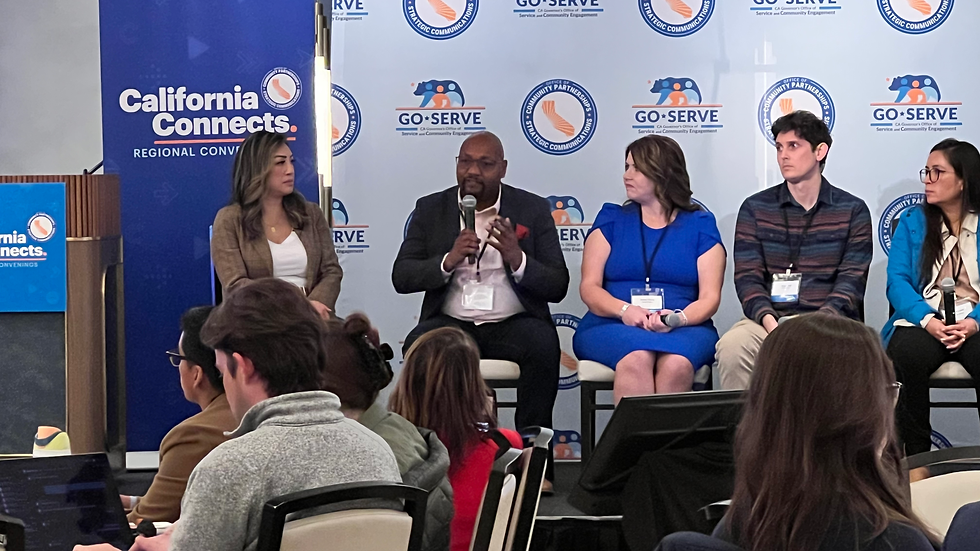Gov. signs host of bills: new law criminalizes calling transgender elderly "preferred" gen
- INFO-MD Staff

- Oct 18, 2017
- 4 min read

Sacramento, CA --In 2007, the National Association for the Advancement of Colored People (NAACP) symbolically buried the ‘N-Word. The country's oldest civil rights organization held the mock funeral at its convention in Detroit.
"We can plant the seed to a new word - the ‘A' word, ‘all' – all our people," then-Michigan Gov. Jennifer Granholm told the audience gathered at the burial. She expressed pride that the funeral was being held in her state.
Considering the protective legislation that passed this month in California, perhaps the NAACP should have ripped a page from the LGBTQIA community playbook. What if the civil rights organization had solicited the aid of state lawmakers to outlaw offensive language, verbal abuse, and discrimination that targets Blacks?
On October 4, Gov. Jerry Brown signed SB219, enacting the "Lesbian, Gay, Bisexual, and Transgender Long-Term Care Facility Residents' Bill of Rights. The measure approves a $1,000 fine, and up to a year in prison for long-term care facilities and intermediate care workers who "mis-gender," or fail to use the gender pronouns, patients prefer to be called.
Sen. Scott Wiener of San Francisco authored the bill.
The language of the legislation explains it is now "unlawful, except as specified, for any long-term care facility to take actions wholly or partially on the basis of a person's actual or perceived sexual orientation, gender identity, gender expression, or human immunodeficiency virus (HIV) status."
The bill also has provisions against denying admission to a long-term care facility; transferring or refusing to transfer a resident within or to another facility; and discharging or evicting a resident.
Human rights Attorney Nana Gyamfi, founder of Justice Warriors for Black Lives, said a couple of factors are at play now that the law has been passed.
First, she says, care workers are concerned about potential criminal charges associated with pronoun uses that many people take for granted.
Second, they are worried about inadvertently incurring jail time and fines that could affect their lives and careers,
She said she remains confident, however, modifications will be made over time to more clearly define what will actually constitute a crime.
"It will be if someone does something repeatedly and maliciously. It's not just because you one time, or a couple of times, mis-gender someone," Gyamfi stated.
Gyamfi says she thinks the bigger issue is what always plagues Blacks. Often, they want to discourage or criminalize the use of certain racist words or expressions like the ‘N-Word' because of the harm it does to their community, but the usually dismissive response has always been, "Hey, people should have the right to engage in free speech," she stated.
When Blacks complain about verbal discrimination, she says critics always call up the First Amendment. They say you can't stop a person from saying something because someone else finds it to be hateful, she went on.
"That's why we see the American Civil Liberties Union (ACLU), for example, consistently jumping in on the side of Nazis, Klan members and other White supremacists to protect their right to protest and to say hateful words," Gyamfi continued.
"I think the word should be eliminated from the lexicon. I think it should be eliminated for everybody," media mogul Oprah Winfrey told the Hollywood Reporter recently. "I have been on record being anti-the word, period. Nobody should be allowed to say it."
Winfrey says the haunting image of a Black family watching a lynching while a mob cheers on in a coffee table book she owns comes to mind.
"You will never change it for that family," she said. "You will never change it for whom it was the last word they heard when they were hung or they were dismembered or they were degraded.'"
Other Blacks don't find the ‘N-word' offensive and many, in fact, assert their right to use it. They typically argue that using it will strip it if its racist power. That, Gyamfi says, complicates building consensus on labeling it a racial epithet.
Gyamfi says one way nursing home workers can protect themselves is by using words that are not gender specific like "person" or "patient."
Gov. Brown signed another bill that created a firestorm in California recently. The bill makes knowingly transmitting or donating HIV/AIDS-tainted blood a misdemeanor.
Responding to that measure, legal experts, including Gyamfi, said it requires proving some maliciousness or willfulness on the part of the HIV-infected person in order to prosecute.
"They put a lot of this accountability stuff in weird places. Yes, the system should catch it, but people should also open their mouth and tell the truth, because the consequences are more than misdemeanor penalties," she argued.
Meanwhile, Gov. Brown also signed a package of bills put forth by Assemblywoman Holly Mitchell. SB355 (No Court Fees for the Innocent), will mandate reimbursement for legal counsel fees only from those convicted of a crime. And SB190 would cut administrative juvenile fees that have caused hardship to already struggling families.
In addition, he authorized:
AB84, which curbs food marketers' abilities to promote unhealthy foods to students on school campuses.
AB1344, which ensures the formerly incarcerated, or those making their transition out of the penal system, get accurate information about their voting rights.
AB940, which requires that long-term skilled nursing facilities give residents or their representative's written notices of discharge, as well as notify the local office of the State Long-Term Care Ombudsman Program within 24 hours of notice to residents.
AB1008 (historically ‘Ban the Box'), which would prohibit a public or private employer from asking a prospective employee their conviction history on an initial application for employment.
AB23, which authorizes and protects all boys' and all girls' single-gender institutions and educational programs.








Comments